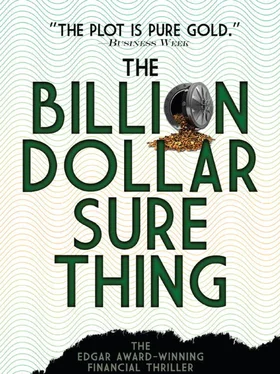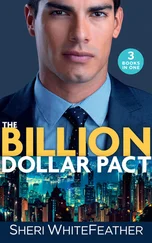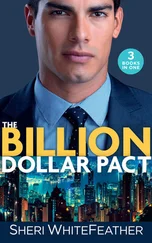But already by midday profit taking, Japanese profit taking set in. The temptation for Japanese banks and brokerage houses to unload their cats and dogs and squirrels into the laps of the great wise men of the West ultimately proved too great. Shares that had sunk into obscurity months, even years, ago were dusted off and these marvelous discoveries grudgingly passed into foreign ownership. One Oriental wit calculated that within three hours 20 percent of the ownership of Nippon Gold Corporation, an obscure little company in the dental materials business in Sapporo, had been transferred to a group of clever investors from San Diego, California, all ex-navy. All this was reported with pride by the early editions of the afternoon newspapers. For it demonstrated beyond any doubt that Japan had been accepted as being eligible for full-fledged participation in a worldwide financial panic.
Financial panics are a funny thing. They bring out the lemming in the human race as no other event does. Sure, wars, especially invasions, do a pretty good job in the panic field. The flight from Paris in 1940 or the flood of Germans who moved west before the Red Army in 1945 demonstrated this quite amply. The plague could also move people rather smartly in the Middle Ages: a few bodies in the street, and whole cities would be temporarily abandoned. Earthquakes also make good people movers. But in all such cases—wars, pestilences, natural catastrophes—panics tend to be local affairs. It takes money, or rather the fear of the loss thereof, to panic people on a worldwide scale—as on this November day.
Lots of nervous money, lots of greed, lots of fear, no government interference. Together they meant that once again the necessary components for a great financial panic were present. It just required somebody to really get it rolling. The Russians seemed predestined for this role, as the sun, having left Tokyo behind, brought a new day to Moscow.
The lot which boarded the Moscow subway on that morning was not much different than that one could meet at the crack of dawn in the Paris Métro or the London Underground. The scent of alcohol and soap joined forces, as the drunks and street cleaners crossed paths.
Comrade Melekov, though undoubtedly an eager beaver, did not exactly fit into this early morning crowd. But there he was, Bally shoes, Pucci tie, Rolex watch, Cuban cigar, and all. It was not the first time that he had smoked a Cuban cigar at this hour. But that was when he was moving in the other direction, after a hard night out. Right now he was on the way to the office.
He was deep in thought, as he swayed back and forth with the movement of the train. Obviously that Ford dealer in Helsinki was a complete bust. After three telegrams and two telephone calls the new gas pump had finally arrived. It did not fit. Melekov did not intend to start commuting by subway. Nor was he going to revert back to one of those automotive marvels of Soviet advanced technology. The only answer was to switch makes. An Oldsmobile 98. That should be just about right. A Mercedes would be in bad political taste. A Cadillac would be going too far. He had heard from a number of fellows in the Foreign Ministry that the General Motors service in Finland was excellent. But what about the Thunderbird? A bit racey for most of the government people. Hockey players or football stars—that’s obviously where the secondhand market lay. They had the dollars, and had learned to appreciate such things. He decided to get immediately in touch with GM that very same day. Must get the brochures and start working on the extras. This time the stereo tape recorder had better work.
Shortly after seven Melekov emerged at the Bolshoi Theatre station and a few minutes later entered the Foreign Trade Bank. The two porters just inside the seedy entrance barely looked up as he started to climb the stairs. That’s one thing he would change. One of the most important banks in the world, and it didn’t have an elevator. Even the stairs creaked.
It was going to be a full day. The contract signing formalities with the Germans had, of course, not taken place on schedule yesterday afternoon. But, as usual, it was not the Germans’ fault. Some jackass in the Ministry of Technology had apparently insisted on some last-minute change. Melekov hoped that that had been settled and that the whole deal could be put to bed before the weekend.
Melekov unlocked his desk and took out his agenda. The weekly meeting of the management was scheduled for eight-fifteen. That would give him ample time to check all the closing positions from the night before.
His secretary, dressed as usual in brown and getting fatter every day, brought in his coffee and the bundles of tear-offs from the Teletype machine.
Melekov started reading. Fantastic! The summary of the coverage in the Times was especially good.
His phone rang.
“Melekov,” he automatically answered.
“Good morning.” It was the big boss himself. “About the management meeting this morning, it’s been decided that we will move it over to the National Bank. The people there feel that a joint consultation on the situation is required between our two institutions. So nine o’clock on Radislov Street, third-floor conference room—you know, the big one. See you there.” Bang.
Aha, thought Melekov. The big play. Fine. The timing could not be better.
“Comrade Lofkin to see you. Will you receive him?” asked his secretary from just inside the door leading to her adjoining office.
“Sure. Send him right in,” Melekov answered.
The young man appeared immediately.
“Lofkin, have a seat. Care for a cigar?”
“Don’t mind if I do. Unbelievable, huh?” said the head of the bank’s foreign exchange department.
“Absolutely fantastic. Have you got our closing positions from last night with you?”
Lofkin had. He moved his chair around closer to Melekov and explained the key numbers on the sheets he had brought along.
After a minute Melekov interrupted. “Look, why don’t you just sum it up.”
“All right. If I take the total position of the bank into account, we at the present time have a net short position on the U.S. dollar of $3.16 billion. I’ve tried to really spread it around. I would guess that Paris, Frankfurt, and Amsterdam took about the same amounts. We did the bigger volume over in Zurich, London, and New York, of course. Especially New York. Boy, we really dumped there.”
“On what average basis?”
“Almost all of it is in the form of three months forward contracts. And the prices are damn good. I figure if we covered this morning, we would already be ahead a good $100 million. Not bad, is it?”
Melekov puffed away on his cigar. “May I keep these sheets for the time being?”
“Sure. What now?”
“Nothing. Just sit absolutely tight. We’re having a management meeting over at the National Bank within less than an hour. I’ll let you know right after that.”
“If you don’t mind, I’d like to get back to my office. Our fellows are absolutely buried in paperwork after yesterday. I don’t want there to be any foulups on the confirmations. Not the way we’re sitting right now.”
“Go ahead. Tell me one more thing, though. Do you think the dollar can hold through today?”
“Well, my opinion is that there’s not a chance in hell. We should know around lunchtime. If the Western Europeans decide to really dump, that will be it.”
“See you later.”
Melekov returned to the position sheets after his assistant had left. No doubt Lofkin was right. Melekov knew that there were at least $40 billion in private hands in Western Europe. When one thought just of the immense number of Eurodollar bonds which had been sold to the Europeans during the past ten years—probably $15 billion right there. The aftermarket for these bonds could not be thinner. Even in quiet times the sale of a block of a couple of million dollars of such bonds was a big deal. Dumping in that market would provide no solution. The only protection would be in the foreign exchange market. Sell dollars short against the box, as they said in New York. This could be unbelievable. Nobody would buy another dollar bond for the next ten years.
Читать дальше












